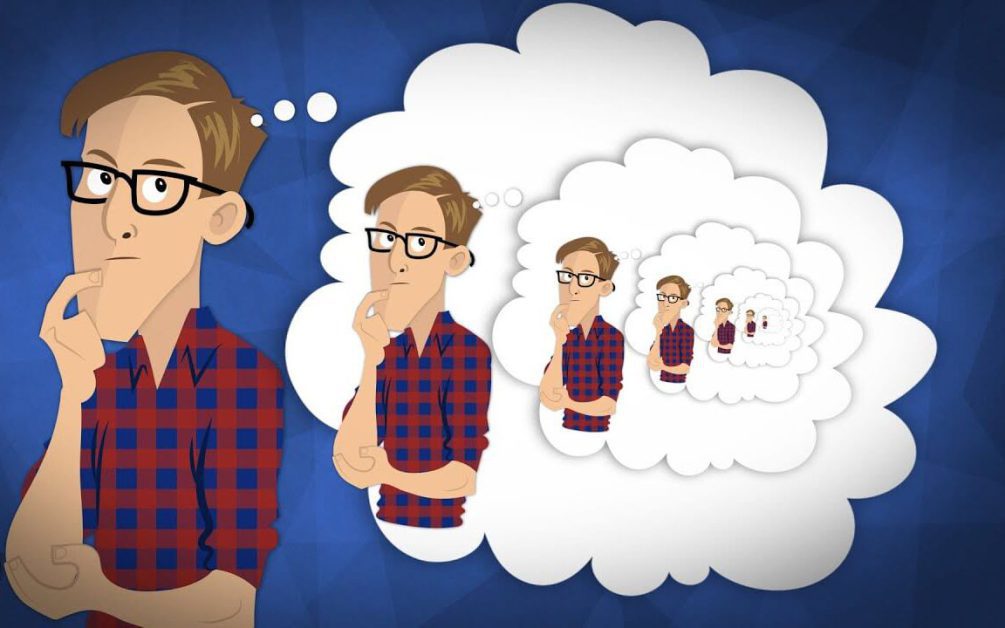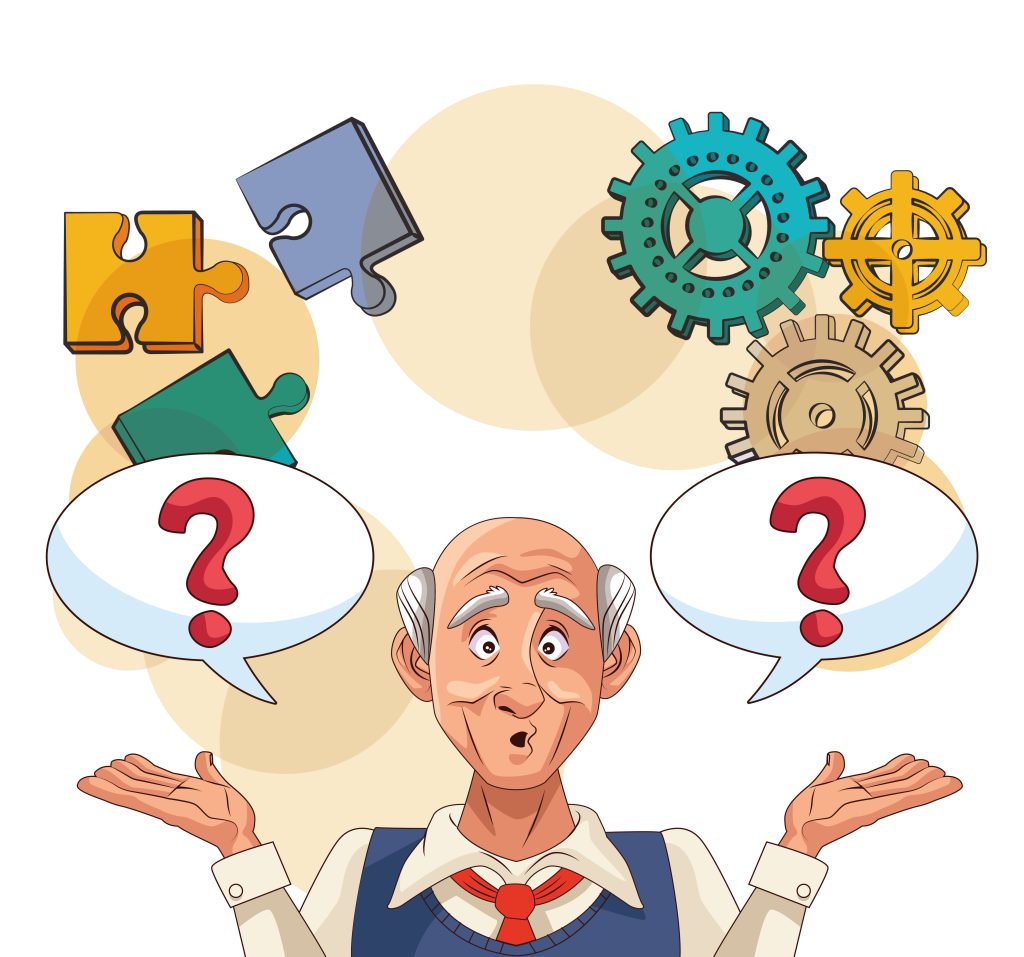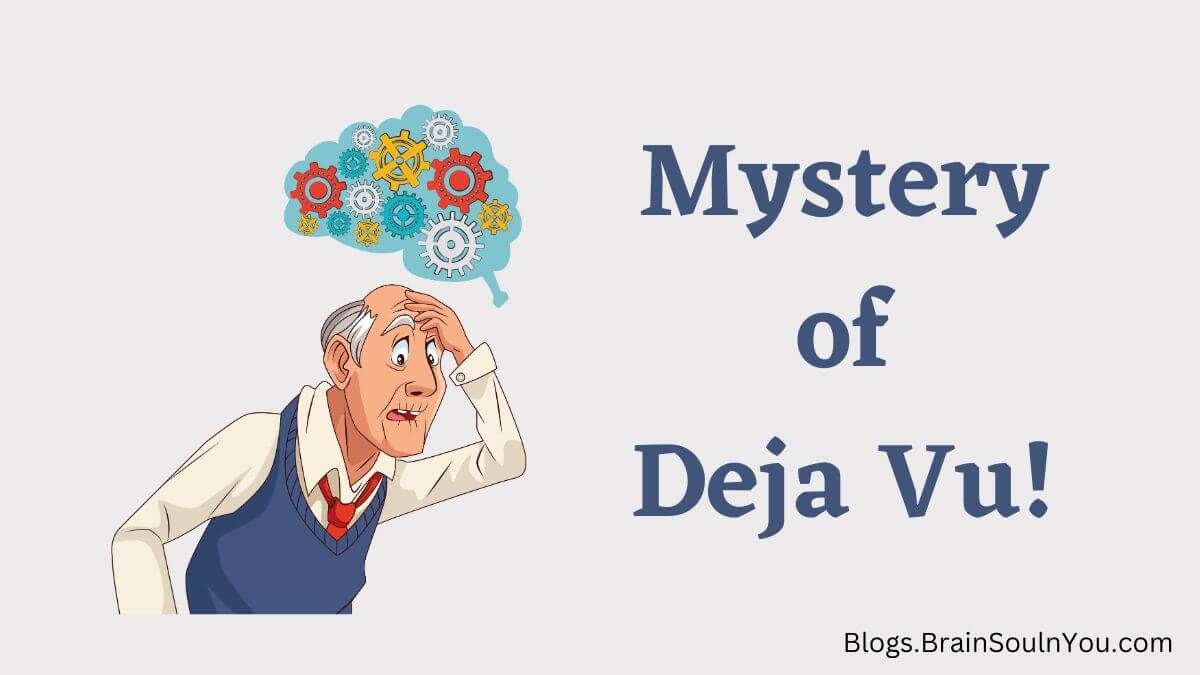Have you ever heard “Deja vu” Have you experienced the feeling, It is a vague feeling when a situation seems familiar. A scene in a restaurant unfolds before you exactly as you remember it. The world moves like a ballet choreographed by you but the sequence cannot be based on past experience because you’ve never eaten here before. You’re Eating Oysters for the First Time, So What’s Up?
I have experienced Deja Vu many times in my life. Sometimes it feels like you have lived a moment before but in reality, you are experiencing it for the first time.
What is Deja Vu?
It feels like when you go to a place or you see someone or a situation, it feels like you are already there or you already know this or this person or thing or experience or whatever also know. Ninety percent of the time it may just be a psychological process.
You have so many boxes in your mind. Most of them have not been opened. Everything you have seen, everything, even if you unconsciously felt it, is still there. Some people may have experienced this, that they have been to your place and it is almost like they know everything about it.

Did you know that people become schizophrenic, and there have been people who have more than thirty different personalities? Do you know? More than thirty personalities played thirty personalities in full scale, with full details, without any hassle. Not just thirty, you can play thirty million if you want. Because the mind is so vast. If you open all, if you want to play thirty million roles, you can play thirty million roles, but it is happening as a disease, so it is a problem. If it was happening consciously then there would be no problem, right?
There are many spaces in the head that you are not aware of. It’s a thing with your mind, everything you’ve experienced, everything, even if you felt it unconsciously, it’s still there.
Why does it Happen?
You’re just walking down the street. You are driving on the roads at seventy – eighty miles per hour, and most of it you don’t even notice it consciously. But the camera of the eye captures whatever it sees and stores it forever. It may not be there consciously, but it is all there.
The same goes for all five senses; Every sound you’ve heard, every smell you’ve smelled, every taste you’ve tasted, and everything you’ve touched and felt, it’s all been recorded and kept, and a large part of it is unconscious. Is. Because there’s so much information inside, it can match almost anything you see in the world, and it can create. If you’re attracted to something, the mind can create this illusion. You were already there because it has all the information it needs to create that kind of scene, it has everything it needs to make it happen.
Two Possibilities
So, I would say that ninety percent of the time it is a psychological process. But sometimes it may happen, some people have the feeling, that they have been to some place and it is almost like they know everything about it. It is a real deja vu.

But I would limit that percentage to two percent of reality, the other eight percent may be out-of-control mental reactions to certain things. But in two percent of the cases, it may be true. Why am I bringing it to this percentage, people have no control over their imagination. And if they like something, claiming that they will make up a lot of things in the background of their mind, which is a psychological process of no importance.
But sometimes it may be true that it is so. Is there such a thing? yes, there is. But most of the time, I would say ninety-nine percent of the time, I would advise you to discount it. You discount it as simply a psychological process. Otherwise, you will see… Once you start believing it, you will see it happening to you everywhere. It means that you are really going out of control.
The Explanation for Deja Vu
Unfortunately, there is no single explanation for Deja Vu. The experiment is quick, brief, and occurs without warning, making it nearly impossible for scientists to record and study. Scientists can’t just sit back and wait for this to happen to them. This may take years. It has no external physical evidence and is described in studies as a sensation or sensation by the subject or situation.
Due to a lack of solid evidence, there has been a great deal of controversy and speculation over the years. Since Émile Bouriac introduced déjà vu as a French word meaning “Already Dreamed”, more than 40 theories have attempted to explain the phenomenon. However, recent developments in neuroimaging and cognitive psychology have reduced the range of expectations.
Let’s review three of the most popular theories, using similar restaurant settings for each.
The Most Popular Theories about Deja Vu
1. Double Assimilation
The first principle is called double assimilation. We will need movement. Let’s say the waiter dropped a set of plates. As the scene unfolds, both hemispheres of your brain absorb a flood of information: the waving of the waiter’s hands, his cries for help, and the smell of pasta. All in milliseconds, this information crosses paths and is processed in an instant.
Most of the time, everything is recorded in perfect sync. However, this theory says that déjà vu occurs when there is a slight delay in information within one of these pathways. The difference in arrival time causes the brain to interpret the delayed information as a separate event. When projected onto a pre-recorded moment it makes us feel as though it happened before because, in another sense it happened before.
2. Hologram Principle
The following theory deals with past delusion rather than present-day error. It’s called the Hologram Principle and we’ll use this tablecloth to test it. A distant memory is surfacing from the depths of your brain as you check its boxes.
According to the theory, because memories are stored in the form of holograms and holograms, you only need a part of it to see the whole picture. Your brain has identified the tablecloth with one from the past, perhaps from your grandmother’s house. However, instead of remembering that you saw this pattern at your grandmother’s house, your brain recalled the old memory without defining it.
It makes you stuck with familiarity without missing out. Even though you have never been to this restaurant, you must have seen this tablecloth but failed to recognize it.
3. Divided Attention
Our final theory is called divided attention and says that déjà vu occurs when the brain subconsciously immerses itself in the environment around us while we’re distracted by a particular object. And when our attention returns, we feel as if we were here before.
For example, only now you have focused on the fork and not the falling tablecloth or the waiter. Even though your brain was registering everything in your peripheral vision, you did so without realizing it. And when you finally turn your attention away from the fork, you’ll feel like you’ve been here before, because you’ve been here. Just not paying attention.
Although all three of these theories share features in common with déjà vu, none of them appears as the definitive source of the phenomenon. However, we are waiting for researchers and inventors to come up with new ways to capture this fleeting moment. We can study this moment for ourselves. After all, most studies of déjà vu are based on first-hand accounts, so why not have your own?
Next time you have déjà vu, stop for a moment and think about it. was I distracted Is there anything familiar? Is Your Brain Behaving Slowly? Or is it something else?
What is the difference between deja vu and deja reve?
Deja Reve vs Deja Vu
Where deja reve means “already dreamed,” deja vu translates to “already seen.” It’s even more common than déjà rêvé (in fact, most people have experienced it), and Ellis notes that researchers have a better understanding of this phenomenon than they do of déjà rêvé.
The Science of Deja Reve.
As mentioned, Deja Rave is actually a broad term that includes three different types of déjà rêvé that someone may experience, as described in a 2018 study.
3 types of Deja Reve:
Episodic-like deja Reve: According to research, episodic-like déjà vu is the recollection of a specific dream. The study authors note, “The patient can automatically specify that he had this specific dream on a specific date.”
Familiar-like deja Reve: Where episodic-like déjà vu is related to a specific dream, familiar-like déjà vu is related to an ambiguous dream.
Dreamy state deja Reve: Slightly different from the first two, dreamy state déjà-rave describes an experience in which the subject feels they are dreaming. The study authors note that it is literally “a dream state.” They write in their research, “The patient describes a feeling of being in a dream, reminding him of a sensation (or state of consciousness) similar to night dreaming.” Furthermore, these dream states were induced by less specific EBS regions but still related to the temporal lobe.
An Analogy for Deja Vu
An analogy that doesn’t explain deja vu it’s not an accurate model but it will just give you a hint or a taste of what might be taking place in deja vu.
First of all, have you ever actually experienced the past or the future. No. So if we’ve never experienced a past or a future it’s tantamount to saying we’ve never experienced time. So if time is never actually experienced although.
We have the concept of time we don’t actually experience it. So could it be that time is what we call time is not really what it appears to be? Because our experiences are always now and the now is not a moment that is moving along a line of time.
We don’t actually experience that to experience that line of time. We would have to have experienced the past or the future but as you rightly say we don’t. So the now is not actually a moment in time it is eternity.
We have a model of time could it be that our model of time is just our limited mind’s point of view of eternity that eternity is what time is what eternity looks like when refracted through the prism of each of our finite minds in other words that what appears to us in the horizontal dimension of time really takes place in the vertical dimension of being it’s but that our mind refracts the eternal now out spreads it out so to speak and makes it appear as time I just consider that possibility.

So now let’s translate that into an analogy to take a novel and when you buy a novel let’s say um in the novel it’s the story of it’s a story of a person’s life so in the novel there’s a story of a hundred years it takes the novel takes place over a hundred years and when you buy the novel that the novel is complete.
It’s all there in the same moment but you can’t access the entire novel in one moment you have to read the novel page by page so although the entire novel exists completely the only way you can access it is by reading it page by page and you reading it page by page spreads out the novel it takes you a month to read it but yet it’s all contained in the in the moment and normally the contents of the novel you have to access page by page.
If you’re on page 44 you can’t you don’t know what’s happening on page 73 because the pages are separated the contents of each page is not available until you open that page but sometimes if this separating mechanism if each page is not quite as opaque as it should be if the page, if some of the pages are transparent, then some of the contents of page 73 filter through and you read them on page 44.
In other words, you experience on page 44 what’s really going to happen on page 73 would that be via dream that’s no that’s deja vu or it’s it it’s um it’s in this case you’re seeing something that’s that that’s um that’s taking place in the in in the future
Sorry, I should do it the other way around um for you deja vu you’re on page 73 you’ve forgotten what happened on page 14 but the contents of page 14 filter through the transparent layers and they appear on page 73 so something that actually took place on page 14 you re-experience it when you’re reading page 73.
It would also account for intuition which is uh the opposite of deja vu it’s an intuition of something that’s going to happen in the future rather than a recollection of something that happened in the past
now I’m not saying that this is an accurate model of deja vu I’m just trying to make a distinction between our concept of time we normally think that experience takes place in time which is contrary to our experience we never experience the time we only ever experience the now is not a moment in time it is eternity the eternal now so how can we reconcile the concept of time and our experience of the eternal now and as we try to reconcile them
I use the example of the novel the novel is fully present now and yet we can only access it in time so it’s an analogy that accounts for both our belief in time and our experience of the eternal now and the analogy tries to show how something that either took place in the past or is going to take place in the future could filter through into the present.
If all of the time is contained in the present so you’re suggesting that life our life is already pre-written. No, it’s not. As literal as that or at least certain moments in time of pre-written but there may be choices in between or we’re not here to lenders make the choice.
We’re here to understand the choices it’s more subtle than that it’s more complex and I’m not suggesting that our lives are pre-written like a novel. It’s not all written on that it happens. You know he’s jamming all the time. It’s like you two with the violin and you have no idea what you’re going to play.
It looks to us all very orderly and as if they’ve been rehearsing but actually they didn’t they just started playing that George and um yeah um so no I’m not meaning to imply that it’s all pre-written in a way that I don’t know how I would explain this but that both let’s go back page 73 what happened on page 14 in deja vu filters through into page 73 while you’re reading it and you think oh this is a deja vu.
I experienced it in the past but it’s not wasn’t really you see when you asked the question oh is it all pre-written you’re presuming time has it all been written in time no your question presumes the mistake it presumes the existence of a time page 14 didn’t really happen in the past page 14 is somehow contained in the same moment that page 73 is contained in the even calling it deja vu.
I’ve already seen this it’s already happened presupposes it happened in the past no it didn’t happen in the past there isn’t any path for it to happen in but we cannot think about this why because our minds are constructed to think in time and space so it’s why it’s not possible to explain time and deja vu.
Because any explanation will contain time thought is time. Time is created with or imagined with thought so that’s why when you push your mind to try to come up with an explanation we reach we reach the limits of the mind because the mind imposes its own limit on everything that it thinks about there is a deep knowing there though at that moment just it’s knowing.
There’s a deep knowing but the mind misinterprets that deep knowing and it is in line with its own limitations and says I’ve experienced something that happened in the past not that’s a misinterpretation but there’s something right about the mind knowing the mind just gives it the wrong interpretation it didn’t it’s not really a deja vu it hasn’t already happened there is no past for it to have already happened in but that’s the best the mind can say.
So, the mind is right something that this deja vu experience fractures your perfect model of time and space it shatters our view of the world normally everything seems to conform with our belief in time and space, and then something like this happens deja vu that this just shatters our time and space vision of reality and then to try to put that model back together again that the mind then uses its belief in time to construct a model about what’s happening and in doing so it just reinforces.
It’s a belief that the past exists and that this has happened before the deja vu it’s already been seen so it’s impossible for the mind to really correctly interpret these experiences I’m that’s why I said this analogy of the novel is not an accurate analogy I’m just trying to give you a taste trying to give the mind a taste of.
I’m trying to reconcile our belief in time with our intuition that in reality there is no time trying to reconcile these two models in a way that gives the mind just a taste of what might be true now I’m not sure how would I explain that did that make sense you know yeah but just don’t try and understand it with your mind more like it is it’s more of an opening of the mind to get you to question time and space.
The value of these experiences is to shatter our model of experience it’s all made out of matter it all takes place in time and space time and space of the ultimate nature of reality.
The value of these experiences is to shatter that model rather than to give us a new model the fact that it’s happened you know makes you think wow the deja vu experience is so powerful you know you’re not imagining it.
It’s a little fracture when the doors of perception open and you oh my god things are not the way I thought they were time is not what I thought it was that’s the that’s the power of an experience of that and that opens you to a new possibility it’s not supposed to replace your old model with a new model it’s supposed to open you to a new possibility.
Frequently Asked Questions (FAQs)
- What is the difference between deja vu and deja reve?
Deja vu translates to “already seen,” while deja reve means “already dreamed.” Deja vu is more common and refers to a feeling of familiarity with a situation, while deja reve encompasses three types of experiences related to dreams: episodic-like deja reve, familiar-like deja reve, and dreamy state deja reve. - Why does deja vu happen, and is it a common experience?
Deja vu occurs when a situation feels familiar as if it has been experienced before, even when it hasn’t. It is a relatively common phenomenon, with many people reporting experiencing deja vu at some point in their lives. The exact reasons for deja vu are not fully understood, but several theories attempt to explain its occurrence. - What are the most popular theories about deja vu?
Three popular theories about deja vu include:- Double Assimilation: Information processing delays lead to the brain interpreting delayed information as a separate event.
- Hologram Principle: Memories are stored as holograms, with a part of the memory triggering a sense of familiarity.
- Divided Attention: Deja vu occurs when the brain subconsciously processes the environment while distracted, creating a feeling of familiarity upon returning attention.
- Can deja vu be explained scientifically?
While there is no single scientific explanation for deja vu, several theories attempt to shed light on the phenomenon. The lack of external physical evidence and the brief, unpredictable nature of deja vu make it challenging to study scientifically. Recent developments in neuroimaging and cognitive psychology have contributed to understanding but haven’t provided a definitive explanation. - Is deja vu a glimpse into the past or future?
Deja vu is not a literal glimpse into the past or future. The blog suggests an analogy comparing time to reading a novel, where different moments are contained in the eternal now. Deja vu might be a misinterpretation by the mind, trying to reconcile our belief in time with the deeper knowing that there is no real past or future. It’s an experience that challenges our conventional understanding of time and space.
Read more blogs on How the Brain Constructs Dreams? | Altered State of Consciousness | What is Subconscious Mind?
Love,
Saurabh Goel
Saurabh Goel
He is the Founder and CEO of the Training and Counselling Company ‘Brain Soul & You’. He is an NLP Wellness Coach, Life Coach, Brain analyst, and Trainer for Education, Corporate, and Entrepreneurship. For more than 7 years, he delivered presentations on entrepreneurship, mind programming, and motivation. He did his B.tech in IT and later choose to be a successful psychologist. He is helping people in various ways through his counseling and training sessions.


